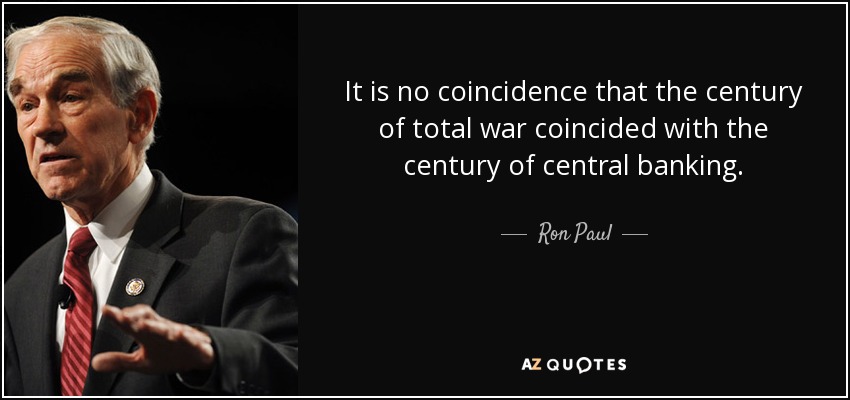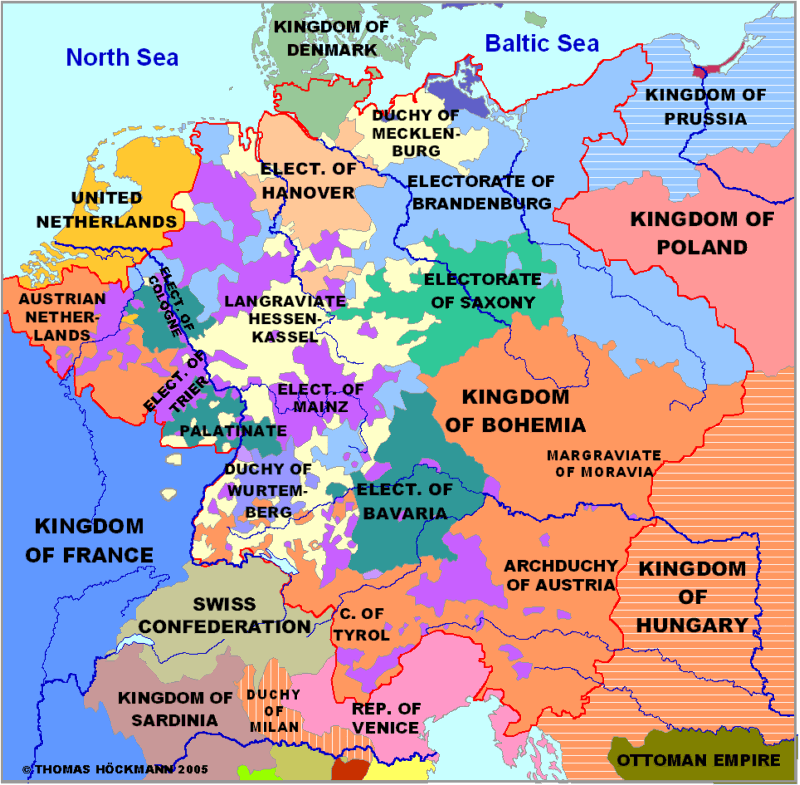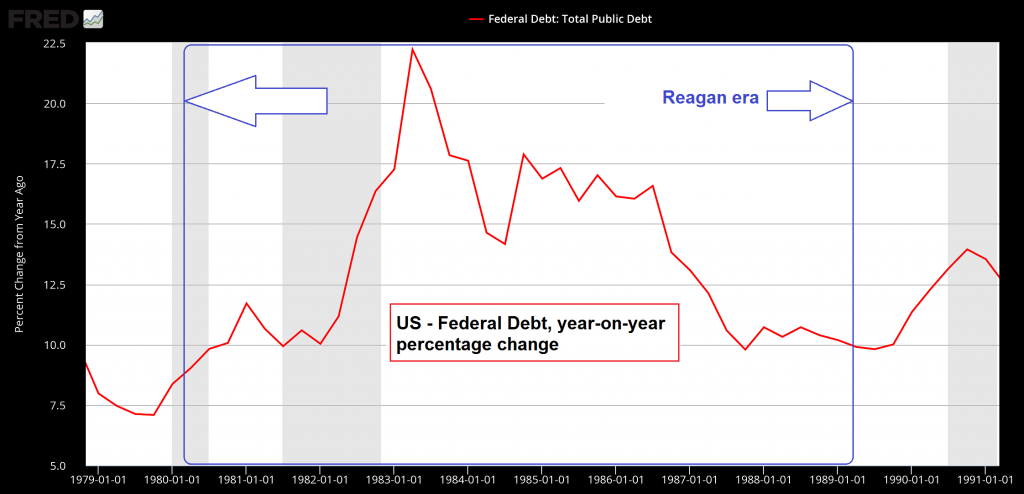Opportunity Cost Rears its Head Last Thursday’s wanton attack on a Syrian air field by the US and its bellicose actions toward North Korea have brought the real cost of candidate Trump’s landslide victory last November to the forefront. It didn’t take long for Donald Trump to drop his non-interventionist mask. The decision was likely driven by Machiavellian considerations with respect to domestic conditions, but that doesn’t make it any better. - Click to enlarge Unlike most laymen, accountants, and financial analysts, economists look at cost differently. For economists, cost or more specifically, “opportunity cost,” means “a benefit that a person could have received, but gave up, to take another course of action. Stated differently, opportunity cost represents an alternative given up when a decision is made.” Such thinking can be roughly applied to the political realm. In the case of last fall’s US Presidential election, the cost of Donald Trump’s unexpected victory was not the money spent on the campaign, but the diffusion (hopefully, only temporary) of the growing anti-Establishment groundswell that was percolating not only in America, but across the globe.
Topics:
Antonius Aquinas considers the following as important: Debt and the Fallacies of Paper Money, Featured, newslettersent, On Economy, On Politics, U.S. Federal Debt
This could be interesting, too:
Nachrichten Ticker - www.finanzen.ch writes Die Performance der Kryptowährungen in KW 9: Das hat sich bei Bitcoin, Ether & Co. getan
Nachrichten Ticker - www.finanzen.ch writes Wer verbirgt sich hinter der Ethereum-Technologie?
Marc Chandler writes March 2025 Monthly
Mark Thornton writes Is Amazon a Union-Busting Leviathan?
Opportunity Cost Rears its HeadLast Thursday’s wanton attack on a Syrian air field by the US and its bellicose actions toward North Korea have brought the real cost of candidate Trump’s landslide victory last November to the forefront. |
|
| Unlike most laymen, accountants, and financial analysts, economists look at cost differently. For economists, cost or more specifically, “opportunity cost,” means “a benefit that a person could have received, but gave up, to take another course of action. Stated differently, opportunity cost represents an alternative given up when a decision is made.”
Such thinking can be roughly applied to the political realm. In the case of last fall’s US Presidential election, the cost of Donald Trump’s unexpected victory was not the money spent on the campaign, but the diffusion (hopefully, only temporary) of the growing anti-Establishment groundswell that was percolating not only in America, but across the globe. The Trump phenomenon, Brexit, Texas secession talk, anti-immigration gatherings, central bank scrutiny, the exposure and decline of the lying, dominant mass media, and other populist movements and causes were symptoms of the masses dissatisfaction with their exploitation by the ruling elites. Trump’s triumph has squashed and defused many of these populist uprisings since a number of his campaign themes empathized with these trends. A similar situation occurred after Ronald Reagan’s victory in the 1980 election as the great anti-government wave, which swept him into power, dried up almost immediately since Ronnie was perceived as “one of us.” Of course, Reagan was a disaster and fulfilled none of his anti-government campaign rhetoric, but instead went on to become, for a time, the biggest Presidential spender in US history. A Clinton victory, although certainly tyrannical in the short run, would have, no doubt, furthered the anti-Establishment fires and inspired more. For example, Texas may be now on the road to independence from the Federal Leviathan. |
Total Public Debt, 1970 - 1991(see more posts on U.S. Federal Debt, )The annual rate of growth of US public debt during the Reagan era (Dick Cheney’s famous “debts don’t matter” saying was coined at the time, for obvious reasons). During the Reagan administration federal debt grew between 10% to 22.5% per year – Reagan abandoned any pretenses at fiscal conservatism in his first term already. He was marketed as a small government conservative during the campaign, which perversely made it easier for him to turn into a big spender once he was in power. We often observe this phenomenon in modern democracies: if voters happen to vote for a candidate whose program the established bureaucratic-political elites are opposed to, the will of the voting public will always be subverted. Nothing ever changes, not even in the rare instances when allegedly “radical” parties or politicians win an election. A fairly recent and quite glaring example was provided by the election of Syriza in Greece. Greek voters elected a party they expected to completely reject the EU’s bailout policies. In addition, a large majority of Greek voters clearly said “no” to the bailout deal in a referendum. Ultimately, an even harsher deal was imposed on the country than the one it was previously subjected to. The people of Greece got the exact opposite of what they had voted for. Obviously, things like “left-right” divisions merely serve to establish a divide et impera environment in favor of the ruling classes |
A System Beyond RepairThe ills that plague the US and, for that matter, the Western world, will not be solved through a Trump presidency in “making America great again,” but will only come about through political decentralization and the abolition of central banking with a return to sound money. Concomitant with political decentralization and secession is military contraction, as smaller political jurisdictions will have lesser pools of wealth to tap from, while the absence of an inflationary central bank will make military adventurism extremely difficult to conduct. |
 Ron Paul got straight to the point. If wars had to be fully funded by taxation instead of monetary inflation (the pernicious effects of which always arrive with a lag), popular support for war would be precisely zero. No amount of propaganda would be able to alter that (war for the purpose of self-defense would be the only exception). The entire war racket and all the profiteering associated with it would disappear. - Click to enlarge |
| Yet, before such a transformation can take place, an ideological foundation must first be established. A Hillary Clinton administration would have provided fertile ground for such change. Since the groundwork for a depoliticized world has not been laid, a Trump presidency made sense as long as he kept as close as possible to his campaign agenda, the most important of which was foreign policy.
His condemnation of the neo-con policies which have bankrupted the nation, murdered thousands of innocents abroad, and heightened tensions everywhere was crucial in his shocking victory last November. It is apparent that he did not understand how important this support was, or he would have never taken such an utterly stupid decision. With the strike on Syria and seemingly more military action in the offing, Trump’s presidency is now the worst of all possible worlds, at least in the short run, for those opposed to the New World Order. Most serious observers, however, understood, especially after the appointment of so many Goldman Sachs cretins, Israeli Firsters, and nutty warmongers to his administration, that Trump would eventually succumb to the pressure. More importantly, Trump was never fully grounded in an America First mindset, probably not knowing where that term or its gallant founders originated. All, however, is not lost. Trump’s capitulation makes it abundantly clear that the system itself is beyond repair. Getting the right individual to salvage the American welfare/warfare state cannot be done. Trump had many advantages that no future candidate will likely possess, which means that anybody that follows will be an “insider.” |
|
Conclusion – A New Paradigm is NeededMuch of his base, therefore, will no longer support a future Republican candidate or will give him only lukewarm support. With no independent personality to rally around, the millions of disappointed Trumpians will seek new governing paradigms, which will hopefully lead to the growth of secession movements. Ultimately, however, a permanent American foreign policy of non intervention, peace, and free trade will only come about when there is a change in the prevailing ideology of society where all contenders for political office espouse such a notion and today’s warmongers are seen for what they are: enemies of humanity and its Creator. |
Germany 18th Century Germany comprised 360 independent states in the 18th century (city-states, duchies, bishoprics, principalities, etc.). Needless to say, “Germany” did not wage any wars. The smaller the territories of independent political units are, the better things tend to be for the common man, as he can easily vote with his feet if he doesn’t like the policies of his rulers. This tends to be a strong incentive for the latter not to misbehave. It is no coincidence that the the most prosperous countries and territories in the world which are regularly ranked at the top of the freedom index are also some of the smallest independent political units in the world (see the Heritage economic freedom index and the broader human freedom index by the Cato, Fraser and Friedrich Naumann Institutes) . A previous discussion of the topic of secession can be found here - Click to enlarge |
Chart by: St. Louis Federal Reserve Research
Chart and image captions by PT
Tags: Featured,newslettersent,On Economy,On Politics,U.S. Federal Debt



